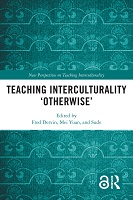Chapter 3 Unity in diversity
Proposal review
Exploring intercultural teaching and learning practices in secondary education and teacher training in Austria
Abstract
This contribution considers classrooms as meeting places, in which students from various linguistic and cultural backgrounds learn from and with each other. Based on an open and dynamic understanding of culture that is strongly focused on the individual, interculturality is conceptualised as the multitude of dimensions in which human beings can show similarities and differences. Among others, these include their diverse experiences, viewpoints, life designs, values or approaches. Providing insights into Austrian secondary and teacher education, I advocate for a holistic and continuous approach to intercultural teaching and learning as well as a critical (language) teacher education. Starting from the existing diversity inside classrooms, activities integrating self-reflection, perspective-changing, and critical analysis form part of an intercultural pedagogy. Related objectives include fostering learners' open-mindedness, awareness of diversity, respect for otherness, reflectivity, empathy, and willingness to act. This promotion of cognitive, affective, and action-oriented dimensions is vital to adequately prepare students for global citizenship constituting a core objective of intercultural education.
Keywords
Intercultural Education; Secondary Education; Language Teacher Training; Learning Diversity; AustriaDOI
10.4324/9781003345275-4ISBN
9781032384795, 9781032433523, 9781003345275Publisher
Taylor & FrancisPublisher website
https://taylorandfrancis.com/Publication date and place
2023Grantor
Imprint
RoutledgeClassification
Philosophy: aesthetics
The arts: general topics


 Download
Download Web Shop
Web Shop